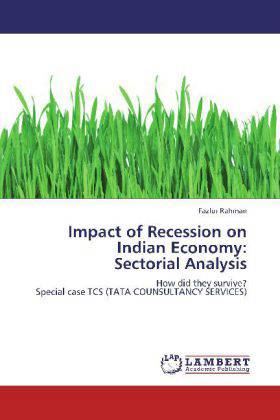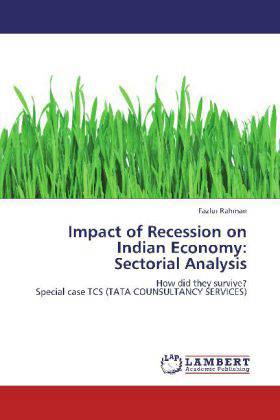
- Afhalen na 1 uur in een winkel met voorraad
- Gratis thuislevering in België vanaf € 30
- Ruim aanbod met 7 miljoen producten
- Afhalen na 1 uur in een winkel met voorraad
- Gratis thuislevering in België vanaf € 30
- Ruim aanbod met 7 miljoen producten
Zoeken
€ 48,45
+ 96 punten
Omschrijving
There is no official definition of recession, but there is general recognition that the term refers to a period of decline in economic activity. Very short periods of decline are not considered recessions. Most commentators and analysts use, as a practical definition of recession, two consecutive quarters of decline in a country's real (inflation adjusted) gross domestic product (GDP)-the value of all goods and services a country produces. Although this definition is a useful rule of thumb, it has drawbacks. A focus on GDP alone is narrow, and it is often better to consider a wider set of measures of economic activity to determine whether a country is indeed suffering a recession. Using other indicators can also provide a timelier gauge of the state of the economy.
Specificaties
Betrokkenen
- Auteur(s):
- Uitgeverij:
Inhoud
- Aantal bladzijden:
- 68
- Taal:
- Engels
Eigenschappen
- Productcode (EAN):
- 9783848426294
- Verschijningsdatum:
- 2/03/2012
- Uitvoering:
- Paperback
- Formaat:
- Trade paperback (VS)
- Afmetingen:
- 152 mm x 229 mm
- Gewicht:
- 113 g

Alleen bij Standaard Boekhandel
+ 96 punten op je klantenkaart van Standaard Boekhandel
Beoordelingen
We publiceren alleen reviews die voldoen aan de voorwaarden voor reviews. Bekijk onze voorwaarden voor reviews.











